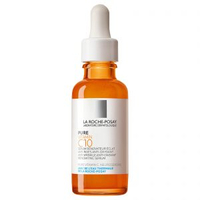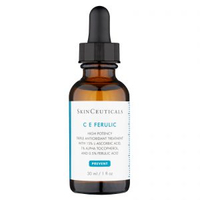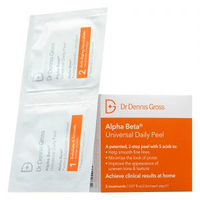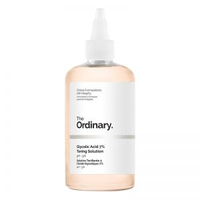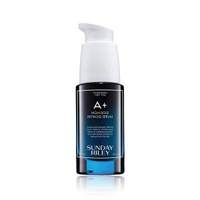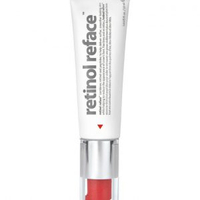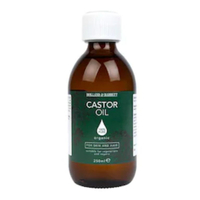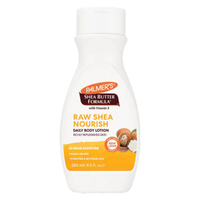How to get rid of acne scars - 15 tips from the skincare experts
Swat up on these 15 expert tips!
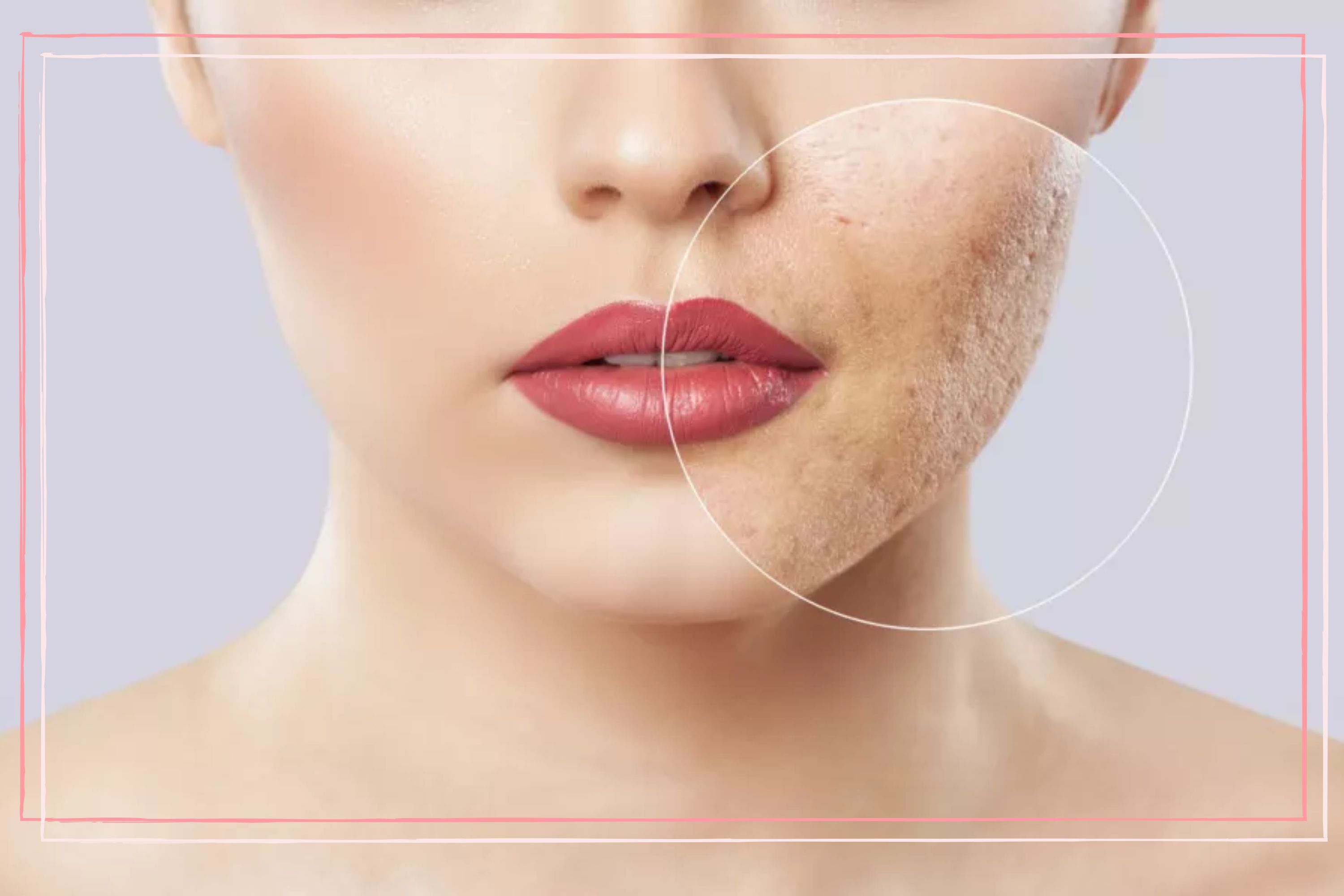

Whether you have pitted scars or red patches left from spots on your face, there are some hard-working ingredients and must-have products that can help get rid of acne scars.
Ask any acne-sufferer and they'll tell you that acne scars are part and parcel of the skin condition. And whilst many are accepting of this, it's something that can still make the most confident person feel self-conscious on occasion. We're all about promoting natural beauty, but finding a lotion or two that can help with the appearance of leftover scarring is something any sufferer would willingly give a go. Which is why we've spoken to skin experts for suggestions on their tips to help get rid of acne scars - or, at least fade them as much as possible.
Much like reducing stretch marks, or getting rid of liver spots, getting rid of acne scars might not happen over night, but these products and treatments showed some visible changes in a few days or weeks with the right approach.
How to get rid of acne scars
For the majority of people, over the counter products are your go-to way of sorting scars left by acne and there are three ingredients to look out for - Vitamin C, Alpha Hydroxy Acids and Retinol.
If your acne scarring is particularly bothersome and you’ve already tried a host of lotions, potions and treatments, you can go in-clinic for specialised treatments. These treatments vary in price and can be costly but are often more effective in reducing the look of acne scars, particularly pitted scars.
1. Vitamin C serums
This powerful antioxidant ingredient brightens the skin and lightens those pesky dark patches of pigmentation for more even-toned skin. According to Aesthetic Doctor, Dr David Jack, "Over the counter formulas including vitamin C can also help [reduce acne scarring]." It works by inhibiting excess melanin that causes the dark patches left when acne has gone. Use it every day on clean skin, underneath your serums or moisturiser to fade dark marks and give skin a natural luminosity.
La Roche-Posay Pure Vitamin C10 Serum - View at Boots
RRP: £32 | Delivery: Standard/Click&Collect
Perfect for skin with uneven tone, this 10% vitamin C serum is just as effective as more costly alternatives. It will improve discolouration, smooth out texture issues and leave a radiant glow.
Skinceuticals C E Ferulic - View at SkinCeuticals
RRP: £150 | Delivery: Standard/Nextday
A fantastic, lightweight serum that’s bursting with discolouration-busting 15% vitamin C (L-Ascorbic acid), vitamin E and ferulic acid. These three ingredients pack a powerful punch, working to improve skin tone and texture. It’s a brilliant solution to acne scarring.
2. Alpha Hydroxy Acid (AHAs)
Alpha Hydroxy Acids act as exfoliants that speed up your skin’s natural shedding process. Most commonly used AHAs include glycolic and lactic acid, both being fantastic at reducing hyper-pigmentation from acne scars. Just remember to use your SPF during the day when using these as they can make the skin more sensitive.
Dr Dennis Gross Alpha Beta Universal Daily Peel - View at LookFantastic
RRP: £18 | Delivery: Standard/Nextday
Containing a combination of acids, these daily treatments work by exfoliating the top layers of the skin. AHA (Alpha Hydroxy Acid) and BHA (Beta Hydroxy Acid) mix together to improve uneven skin tone left behind by acne scars.
The Ordinary Glycolic Acid 7% Toning Solution - View at Boots
RRP: £8.00 | Delivery: Standard/Click&Collect
An exfoliating toner that has seen rave reviews for good reason. This glycolic acid toner minimises the look of acne scars and fades marks, leaving you with even skin tone and an effortless glow.
3. Retinol
Topical retinol or retinoid (the stronger version of retinol obtained through prescription), otherwise known as vitamin A, is a highly effective ingredient for all sorts of skin issues including reducing the appearance of acne scars. This superhero ingredient increases cell turnover and therefore, fades dark spots caused by hyper-pigmentation fantastically well.
It’s an ingredient to start slowly with, as it can cause sensitivity and you should always be applying SPF during the day while using it. Use a lower percentage of retinol to begin with (around 0.3%) then work your way up. Your skin will look smooth, bright and even in tone within weeks.
Sunday Riley A+ High Dose Retinoid Serum - View at Cult Beauty
RRP: £70.00 | Delivery: Standard/Nextday
A cult status product that’s combined the science of retinoids with calming botanical ingredients. This soothing serum speeds up cell turnover so your acne scars gently fade away while keeping skin comforted.
Indeed Labs Retinol Reface - View at Boots
RRP: £13.33 | Delivery: Standard/Click&Collect
Exactly what it says on the tin, this vitamin A derived retinol blend delivers softer, smoother, more even skin tone with regular use. It’s a brilliant, less costly addition to a skincare routine for anyone suffering from acne scars.
Dr Wade suggests speaking to your GP in order to obtain a prescription for stronger retinol - 2% strength is the highest you can buy without prescription. “For mild scarring, we would recommend starting off with a prescription strength Topical Retinoid which is clinically proven to increase collagen production and improve collagen turnover.”
4. Microdermabrasion
Essentially exfoliation that goes a little bit deeper than you can at home with an acid peel or physical scrub, microdermabrasion is performed with a tool coated with fine crystals that are rubbed into the area and a vacuum is applied to suck dead skin cells away, removing and renewing the top layer of the skin. It’s an effective treatment for light to moderate acne scarring but unfortunately, it won’t work on ice-pick scars as these are too deep for the tool to reach.
5. Chemical peels
A chemical peel is an effective way of removing the upper layers of the skin (epidermis) and portions of the middle layers of the skin (dermis). It involves a chemical solution being applied to the skin that after time, will break down the top layers of skin to reveal the renewed surface. Skin will look much smoother, clearer and free from pigmentation. Again, it’s unlikely it will reach the lowest layers of the dermis so won’t be as effective on deeply pitted ice-pick scars.
6. Microneedling
This treatment actually involves small needles (usually on a roller applicator) puncturing the upper layers of the skin, causing slight damage in order to kickstart your body's natural healing response and renew itself. Your body recognises that it’s ‘injured’ and produces more collagen to compensate, leaving you with smooth, diminished scars. It’s a great treatment for mild to moderate acne scars and will certainly lessen the appearance of more severe pitted scars.
At-home microneedling has seen a huge surge in popularity with needled, handheld rollers being purchased, promising renewed skin but, performing this procedure yourself does involve some risks. It’s important to thoroughly sterilise your microneedling device in between uses as bacteria from the skin can thrive and grow on the instrument if not cleaned thoroughly - and you don’t want to be putting that back on to your face and puncturing the skin with it as this can lead to serious infections. We strongly recommend going to a professional for this treatment as you’ll be in a clean environment with sterilised tools and with someone who knows what they’re doing.
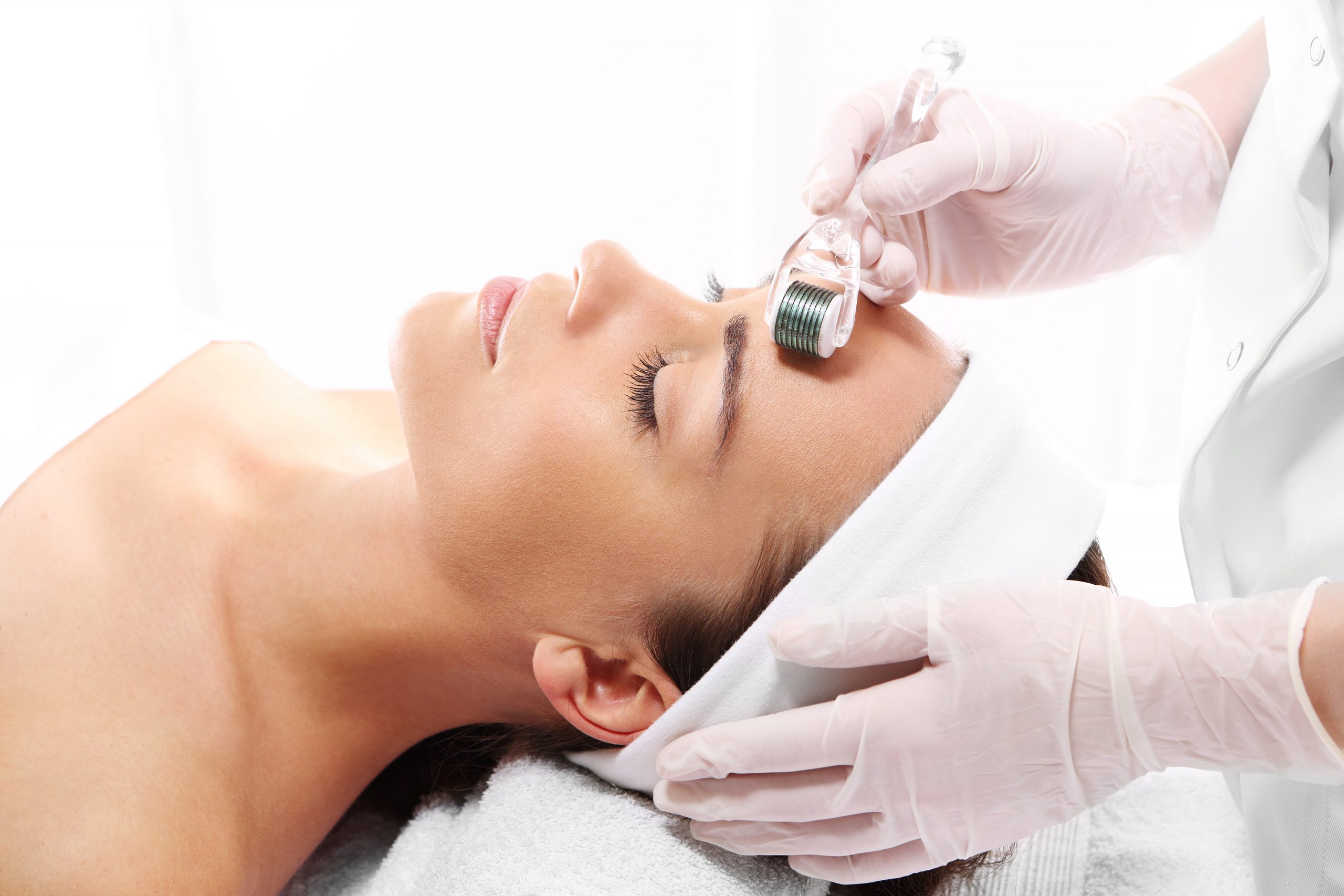
7. Dermal fillers
Not just for plumping lips, dermal fillers are a great way to go for deeply pitted scars. The indent in your skin is injected with medical grade filler to literally ‘fill’ the scar back up, leaving the skin smoothed. You may be left with a small bit of redness immediately after the procedure but this should subside after a few hours or days.
Dr Wade explains how effective fillers can be, “We use hyaluronic acid dermal fillers which are injected into the base of the lesions to lift the skin up. When using temporary fillers, these stretch the skin which stimulates collagen production and so we often find that when the filler has been cleared from the body there is still a permanent effect on the skin as the skin has ‘remodelled’ itself, to some extent.
The drawback of this treatment is that, depending on the patient, fillers might not be permanent and can be expensive (around £150+ depending on the clinic you visit.)
How to get rid of acne scars using natural remedies
8. Acupuncture
If you’re looking for a more natural approach to improving your acne scars, you may want to consider home remedies or holistic treatments with a specialist. We spoke to acupuncturist and facialist Laura Jones at Laura Jones Acupuncture, about the benefits of acupuncture for acne scars, “Acupuncture is very effective at treating scarring as it increases circulation to the area, helping to reduce inflammation as well stimulating collagen production. This encourages the tissue to repair itself, helping to reduce the appearance of acne scarring.”
9. Manuka Honey
Laura goes on to explain that a few kitchen-cupboard treatments can work wonders on marks left by healed acne. “Applying Manuka honey at home is a good option, as it has great anti-inflammatory and antibacterial properties. For dark marks and pigmented skin, applying apple cider vinegar with a cotton bud to the scar and leave on overnight before washing off in the morning. When choosing skin care products, I would suggest looking out products that contain narcissus bulb, kojic and liquorice extract, which have a brightening effect on the skin.”
10. Natural oils
As for raised bumps, she suggests applying a mixture of natural oils. “Oils high in essential fatty acids such as castor oil can help to reduce the appearance of scarring by deeply hydrating the skin and softening fibrous tissue in scars, making them less noticeable, says Laura. "I would always mix it with a carrier oil such as sweet almond oil as castor is quite a thick oil, which can be hard to massage in.”
She added: "It’s worth bearing in mind that ‘natural’ doesn’t always mean better for your skin. These methods aren’t proven nor have they approved by skincare scientists so be aware of things like irritation or soreness and stop using them if this happens." Laura suggests always doing a patch test first, “With all natural remedies it is important to patch test 48 hours before using them on your face to ensure you are not sensitive to them and try to avoid the eye area when applying to the skin.”
Castor Oil - View at Holland and Barrett
RRP: £8.99 | Delivery: Standard/Click&Collect
Head to health store Holland and Barrett for a natural, no fuss bottle of castor oil for under £10.
11. Shea butter
This incredibly moisturising ingredient also has anti-inflammatory properties and is great for soothing fresh scars and keeping your skin hydrated but, Dr David Jack is sceptical of its efficacy, "Shea butter is hydrating and contains fatty acids that can improve barrier function of the skin, however, since acne scarring is deep in the dermis, it’s very unlikely that it is going to make any impact on the scar tissue."
Keeping your skin hydrated is essential for improving the appearance of scars and although shea butter won't make scars disappear, it will certainly leave your skin feeling nourished. It may be tempting to ‘dry out’ your pimple as it’s healing but keeping it moisturised is very beneficial as new cells start to grow.
Palmer's Shea Formula Raw Shea Body Lotion - View at Superdrug
RRP: £4.29 | Delivery: Standard/Click&Collect
Treat your scars to a slathering of Palmer’s Shea Butter Formula daily body lotion. The hydrating and vitamin-rich product is known for replenishing dry, sensitive skin.
12. Lemon juice
Lemon naturally contains exfoliating acids that stimulate cell renewal and can lighten pigmentation - seemingly perfect for acne scarring. While we do not recommended applying raw lemon juice directly onto your skin, you could consider adding it to a homemade face mask.
Dr David Jack agrees, "I wouldn’t recommend using lemon juice on the skin - although it’s rich in sugars, vitamin C and citric acid, there is a high likelihood it will irritate the skin (particularly if it’s already sensitive). This is due to the unstable forms of vitamin C it contains and the irritating breakdown products when it is exposed to air."
13. Coconut oil
This naturally antibacterial ingredient is probably in your kitchen cupboard and is a great, affordable option for hydrating your skin. In a similar way to shea butter, the moisturising properties can help to reduce the severity of acne scars but be careful as it’s highly comedogenic. This means it clogs pores, which can ultimately lead to more spots.
"Similar to Shea butter, coconut oil is hydrating and may help improve barrier function but it is unlikely to do much for acne scar tissue deeper in the dermis of the skin," adds Dr David Jack.
14. Aloe Vera gel
A soothing ingredient that is fantastic for sunburn can also be used on acne scars. It actually contains a compound called ‘aloesin’ which was discovered to help with hyper-pigmentation left from acne scars. Slather it on when your acne scars seem red or inflamed, you might not notice a difference in scar reduction but it will calm aggravated areas.
"Aloe vera contains high levels of the antioxidant vitamin E - which can help brighten the skin," says Dr David Jack. "It is also very soothing so can reduce irritation and inflammation. This being said, it is unlikely to cause any improvement in acne scars when used topically (at least not in the shorter term)."
15. Baking soda
As a natural exfoliating treatment, baking soda works by sloughing off the top layers of the skin - where more shallow acne scars form. It's though that a paste consisting of baking soda and water left on the skin will lighten discolouration and help to smooth uneven patches. However, Dr David Jack says that you might be doing more harm than good, "I would not recommend using baking soda on the skin - its alkaline pH is damaging to the barrier of the skin and reduces its normal protective function. Although this is exfoliating, which can slightly improve the surface texture of the skin, it will not make any difference whatsoever to deeper dermal scars."
How to get rid of acne scars fast
Mild acne scarring can stick around for months (three-six months on average) if left but with the right ingredients and treatments, you can speed this process up to a couple weeks or even a few days. It’s a good idea to start treating acne scars as soon as possible, the longer you leave them, the harder it is to get rid of acne scars. That's why we've suggested using the products listed above, which contain Vitamin C, Alpha Hydroxy Acids and Retinol.
Severe acne scarring and pitted scars tend to be permanent unless you opt for in-clinic treatments. Some of these procedures we've suggested, which include microdermabrasion, chemical peels and micro-needling, can help to get ride of acne scars quickly, while others can also take weeks or months for you to see improvement.
Video of the Week
GoodtoKnow Newsletter
Parenting advice, hot topics, best buys and family finance tips delivered straight to your inbox.

Emma North is a Senior Beauty Writer who works for digital titles including woman&home, Woman, Woman’s Weekly, Woman’s Own, Chat and GoodtoKnow. Emma’s career in beauty journalism began with internships at publications including Vogue, Elle, The Telegraph and Glamour while she undertook a degree in journalism. She was then taken under the wing of Funmi Fetto, Contributing Beauty Editor at Vogue where Emma assisted with Funmi’s debut beauty book, Palette
-
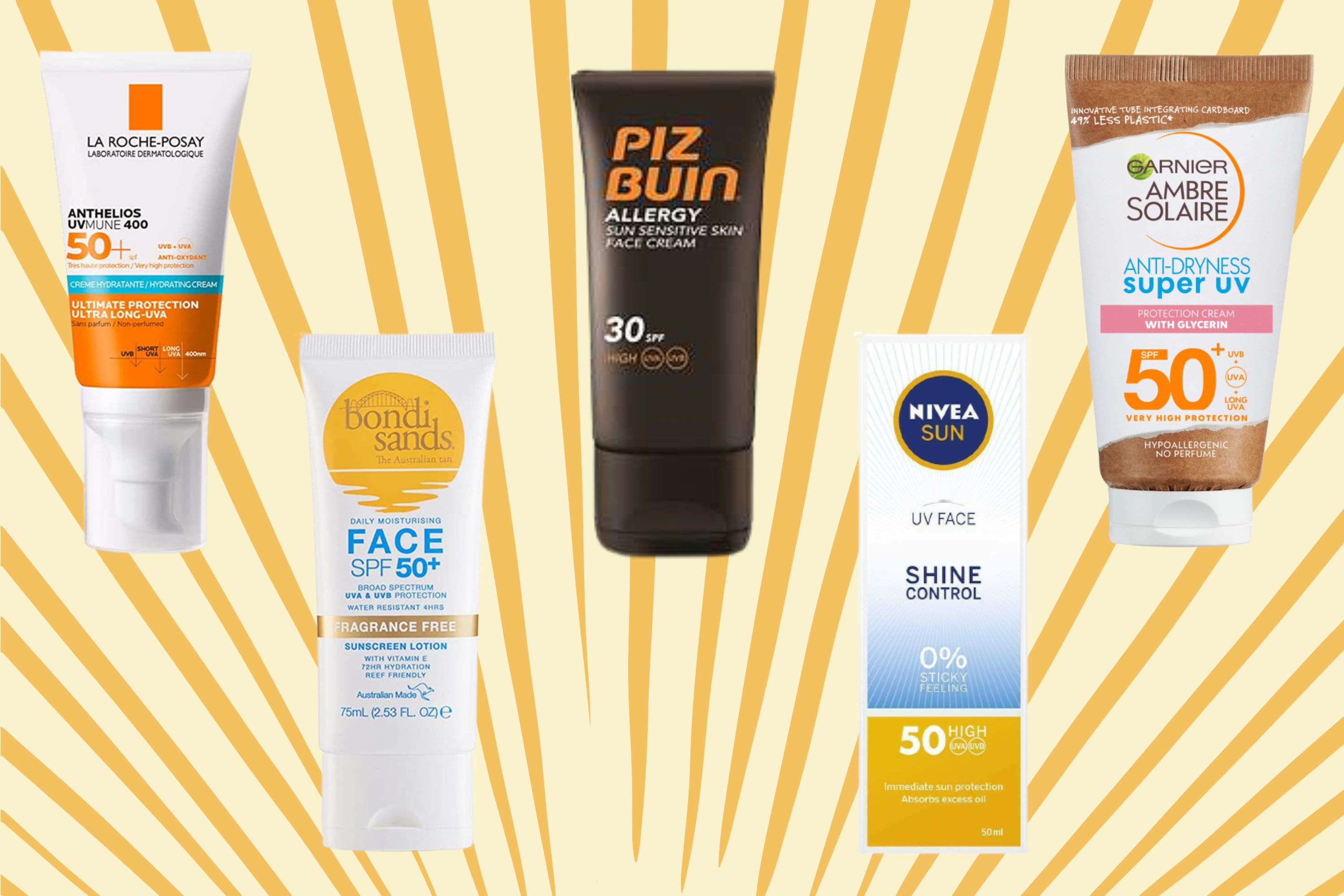 Best sunscreen for your face - the tried and tested formulas you'll love
Best sunscreen for your face - the tried and tested formulas you'll lovePicking the best sunscreen for your face will keep your skin protected all year long. Here, our beauty team and a panel of dermatologists share their favorites.
By Jess Beech Published
-
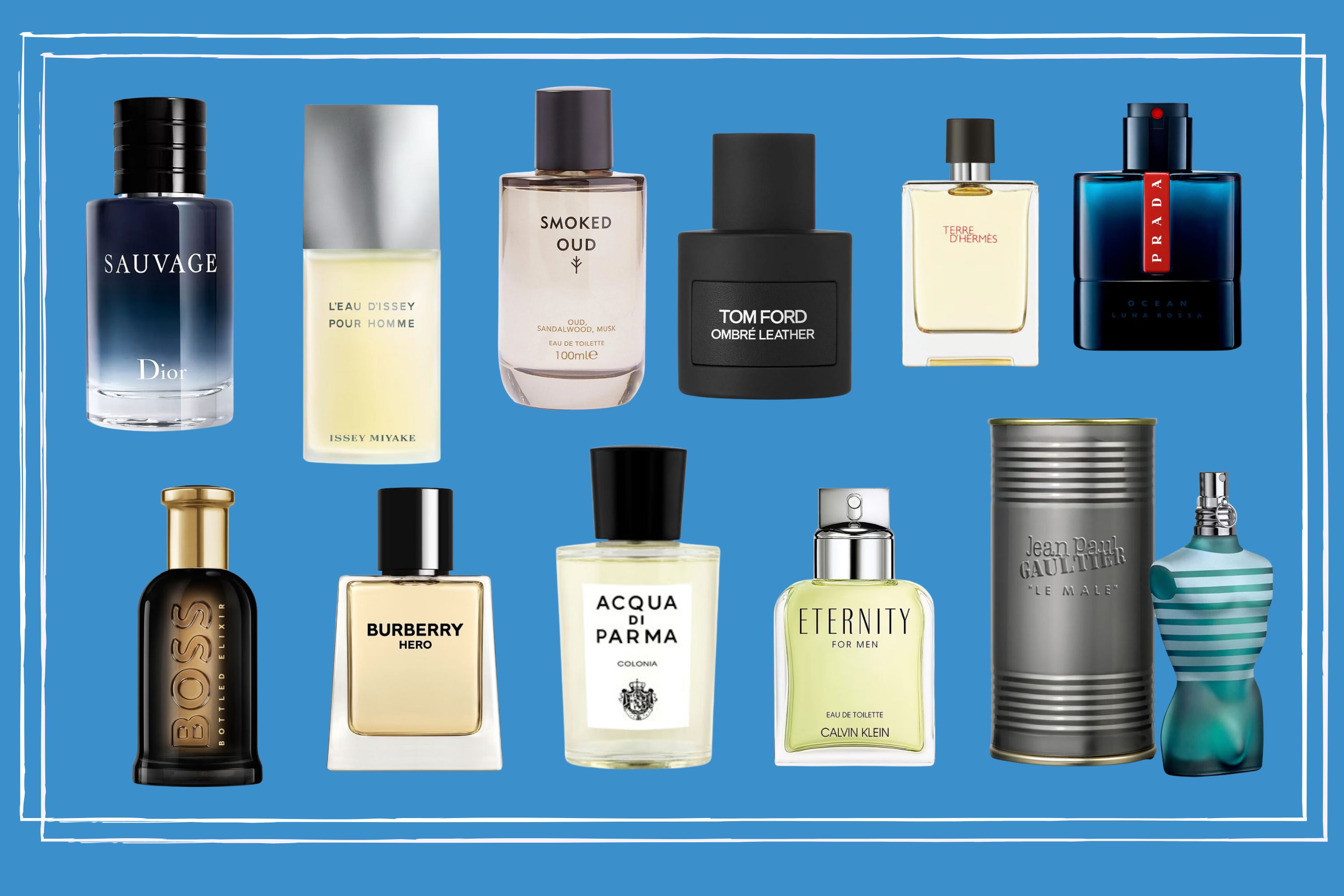 Best aftershaves for dads: last chance to snap up a fresh scent with next-day delivery in time for Father's Day!
Best aftershaves for dads: last chance to snap up a fresh scent with next-day delivery in time for Father's Day!Looking for a new fragrance for an important fella? These are the best aftershaves for dads
By Becks Shepherd Published
-
 Journals for parents: 9 of the best positivity planners and 5-minute diaries to record special moments and manage anxieties
Journals for parents: 9 of the best positivity planners and 5-minute diaries to record special moments and manage anxietiesThe best journals for parents can help navigate the ups and downs of family life - from recording special memories to working through difficult emotions when things get tough.
By Ellie Hutchings Published
-
 I've been sober for a year and these are the best non-alcoholic wines that don't make me feel like I'm missing out
I've been sober for a year and these are the best non-alcoholic wines that don't make me feel like I'm missing outThe best non-alcoholic wines aren't just for Christmas - you'll want to sip these booze-free options all year round
By Ellie Hutchings Last updated
-
 11 best perfume advent calendars 2024: From Lancome and L'Occitane to Molton Brown and Rituals
11 best perfume advent calendars 2024: From Lancome and L'Occitane to Molton Brown and RitualsThe best perfume advent calendars will count you down to Christmas with a new scent every day. Here, our beauty writer rounds up her top picks.
By Annie Milroy Last updated
-
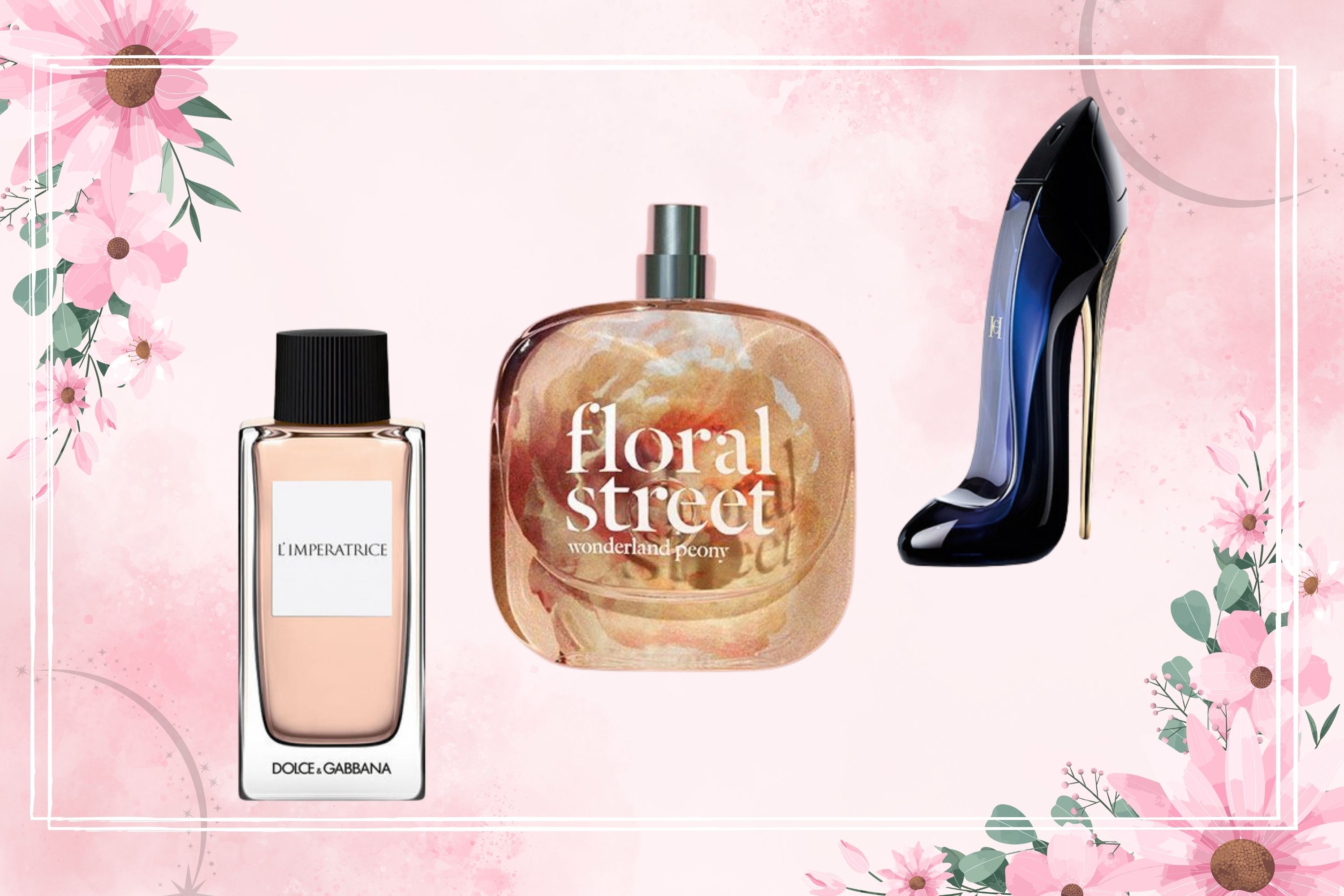 15 best long-lasting perfumes rated by us - and better still, they're all under £70
15 best long-lasting perfumes rated by us - and better still, they're all under £70From Dolce & Gabbana and Chloé to Glossier and Caudalie, these are our favourite perfumes that last all day
By Ellie Hutchings Last updated
-
 A Feminist's Guide to Motherhood by Poppy O'Neill - a guilt-free parenting guide
A Feminist's Guide to Motherhood by Poppy O'Neill - a guilt-free parenting guideAdvice that covers how to know and grow your power as a mother? We're in.
By Heidi Scrimgeour Published
-
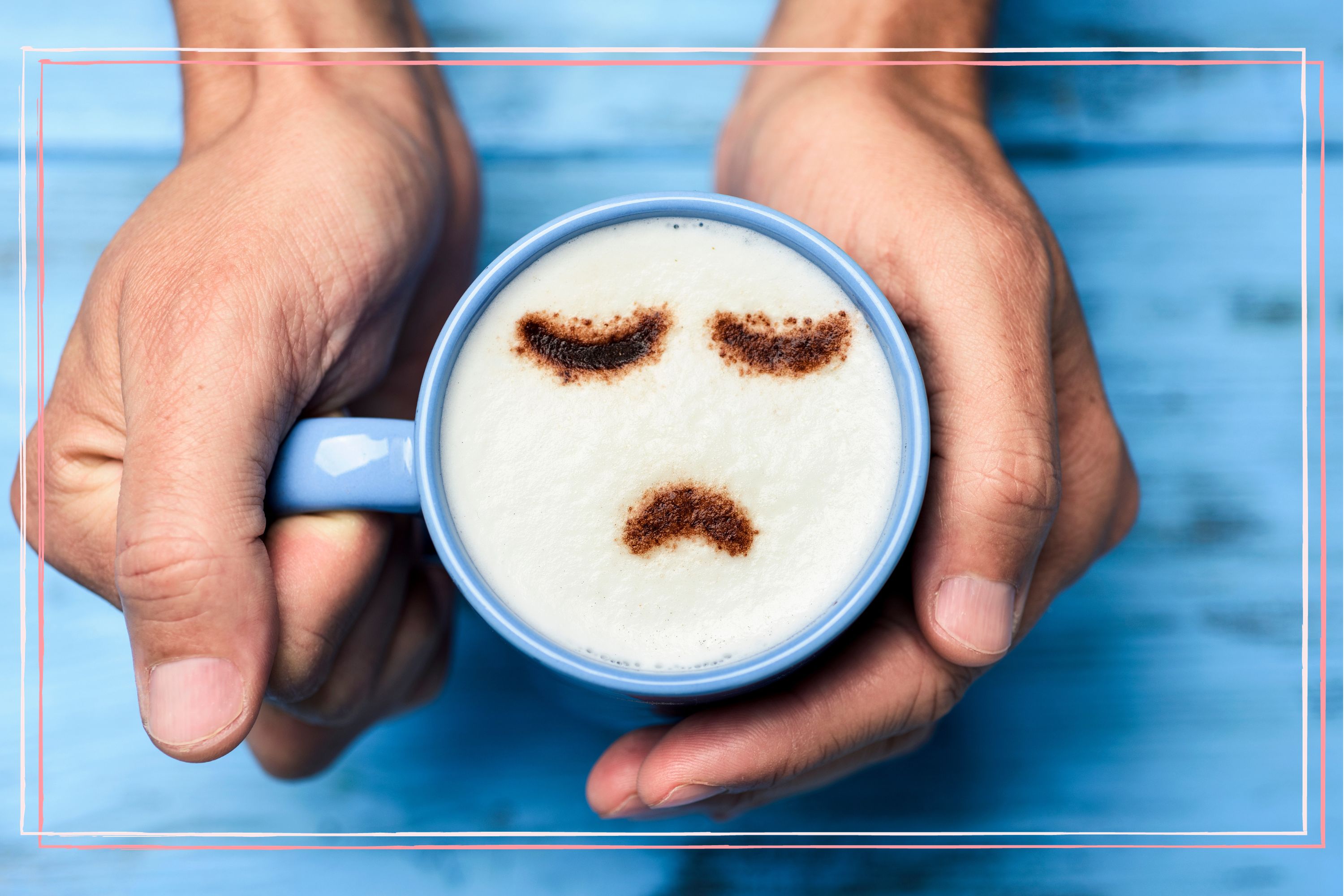 16 mood-boosting products to beat the January blues - and they're perfect for self-gifting too
16 mood-boosting products to beat the January blues - and they're perfect for self-gifting tooBlue Monday is a myth - so let's make it a happy Monday
By Heidi Scrimgeour Last updated
